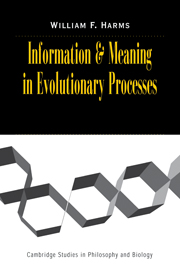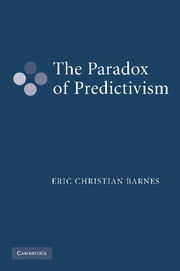Information and Meaning in Evolutionary Processes
William Harms develops the conceptual foundations and tools for a science of knowledge through the application of evolutionary theory, thus allowing us to acknowledge the legacy of skepticism while denying its relativistic offspring. The most significant legacy of philosophical skepticism is the realization that our concepts, beliefs and theories are social constructs. This belief has led to epistemological relativism, or the thesis that, since there is no ultimate truth about the world, theory preferences are only a matter of opinion.
- Applies a modelling approach to epistemology
- Taps into the ongoing debates about the relationship between genetic and cultural evolution
Reviews & endorsements
"...this is a very enjoyable book...Harm's demonstration of the fecundity of his approach may persuade those sympathetic to naturalism that evolutionary epistemology has much to offer." --Joseph Millum, University of Toronto: Philosophy in Review
Product details
August 2007Paperback
9780521039215
284 pages
228 × 152 × 15 mm
0.428kg
34 b/w illus. 8 tables
Available
Table of Contents
- Acknowledgements
- Introduction
- Part I. Generalizing Evolutionary Theory:
- 1. Replicator theories
- 2. Ontologies of evolution and cultural transmission
- Part II. Modeling Information Flow in Evolutionary Processes:
- 3. Population dynamics
- 4. Information theory
- 5. Selection as an information-transfer process
- 6. Multilevel information transfer
- 7. Information in internal states
- Part III. Meaning Conventions and Normativity:
- 8. Primitive content
- 9. Is and ought
- Epilogue: Paley's Watch and other stories
- Notes
- Appendix: proof of information gain under frequency-independent discrete replicator dynamics for population of n types
- References
- Index.





